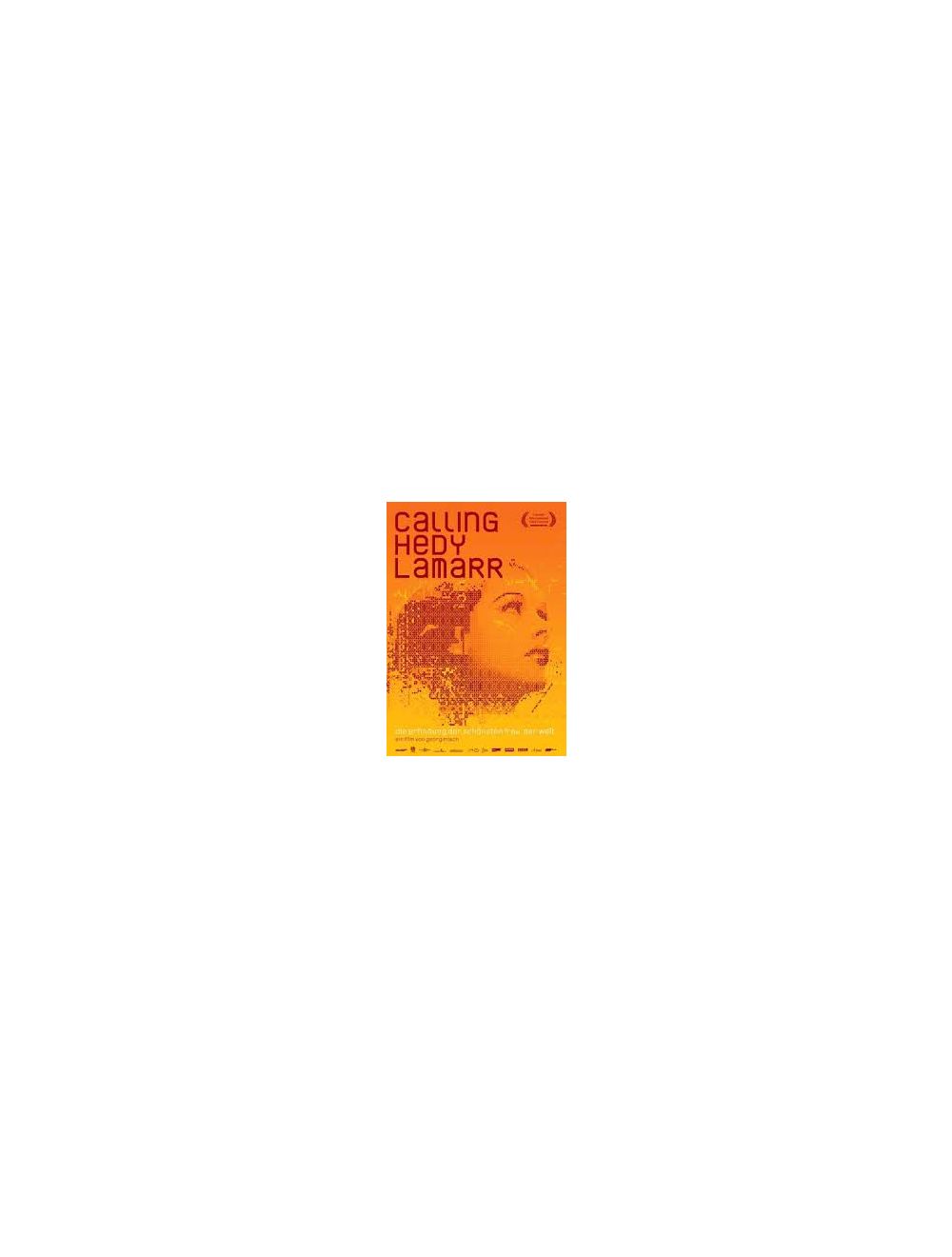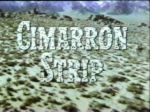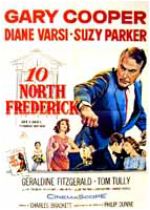Calling Hedy Lamarr (2004) DVD-R
Starring Hedy Lamarr, Antony Loder, Denise Loder-DeLuca, Charles Stansel, Edie Stansel
Paul Page
Directed by Georg Misch
Print: Color
Runtime: 71 Min.
Genre: Documentary
A Face, a Tag Line, an Invention. Two facets that don't seem to belong to the same woman. A Hollywood star as an ingenious inventor piques our curiosity.
The director Georg Misch is interested in how truth and myth intertwine. He listens to stories about her told by people who knew her. He dissects the
history of the woman with the exotic eroticism who not only made surprising and daring decisions in her private life, but who caused a sensation with
an intrepid film project right from the start. What is left? her first film Ecstasy with its scandalous nude scenes, movies that nobody has seen or heard of,
a sixty-year-old son who is still struggling with his relationship to his mother, an invention whose patent ran out too soon, so that what has become a
cornerstone for wireless communications, which are in constant use in our everyday lives, brought its inventor late fame but never earned her any money.
At the end of the day what lingers is the echo of her fascinating beauty. The way the film handles the archive material from various sources reflects the
inner conflicts of a Hollywood diva whose other talent as a mathematical genius and inventor was not allowed to unfold so as not to endanger her aura as a
successful goddess of the silver screen. As we peel away the convolution of myths that grew up about her while she was still alive what gradually emerges
is the portrait of a modern woman beyond the Hollywood star. In the last decades of her life the telephone became her only means of communication with the
outside world, even with her children and close friends. She often talked up to six or seven hours a day on the phone, but she hardly spent any time with
anyone in person in her final years. For this reason, though also of course because of the significance of her invention to modern communications, the
telephone has been chosen as the "structuring motif" of the movie. The interviews in the movie have been staged as telephone calls and lead the viewer
through time like a nostalgic conference with the film's protagonists. Calling Hedy Lamarr isn't, however, a portrait; it is above all a film about the
Hollywood diva from the perspective of her son Anthony Loder, a fairly successful telephone dealer in Los Angeles who wants desperately to be the Hollywood
producer of a feature film about the life of his mother. Through his research he encounters contradictory statements and fantastic theories. There is often
only a fine line between truth and lie. Many times the conversations between him and the other protagonists shift and take on a magical aspect, and in a
supernatural way Hedy Lamarr sometimes even seems to join in. The Hollywood diva's purported schizophrenia is expressed dramaturgically as a persistent
shifting between the extremes of her character and is a strong pattern in the film. The meaning of truth must be constantly reinterpreted. Lamarr's death
in February 2000 marked the end of one of the most complex Hollywood biographies of the last century. The film ends where Hedy Lamarr's story began: in Vienna.
In her will she asks that her ashes be strewn in the Vienna Woods. A homecoming she always dreamed of but which she never managed to make during her lifetime.
Starring Hedy Lamarr, Antony Loder, Denise Loder-DeLuca, Charles Stansel, Edie Stansel
Paul Page
Directed by Georg Misch
Print: Color
Runtime: 71 Min.
Genre: Documentary
A Face, a Tag Line, an Invention. Two facets that don't seem to belong to the same woman. A Hollywood star as an ingenious inventor piques our curiosity.
The director Georg Misch is interested in how truth and myth intertwine. He listens to stories about her told by people who knew her. He dissects the
history of the woman with the exotic eroticism who not only made surprising and daring decisions in her private life, but who caused a sensation with
an intrepid film project right from the start. What is left? her first film Ecstasy with its scandalous nude scenes, movies that nobody has seen or heard of,
a sixty-year-old son who is still struggling with his relationship to his mother, an invention whose patent ran out too soon, so that what has become a
cornerstone for wireless communications, which are in constant use in our everyday lives, brought its inventor late fame but never earned her any money.
At the end of the day what lingers is the echo of her fascinating beauty. The way the film handles the archive material from various sources reflects the
inner conflicts of a Hollywood diva whose other talent as a mathematical genius and inventor was not allowed to unfold so as not to endanger her aura as a
successful goddess of the silver screen. As we peel away the convolution of myths that grew up about her while she was still alive what gradually emerges
is the portrait of a modern woman beyond the Hollywood star. In the last decades of her life the telephone became her only means of communication with the
outside world, even with her children and close friends. She often talked up to six or seven hours a day on the phone, but she hardly spent any time with
anyone in person in her final years. For this reason, though also of course because of the significance of her invention to modern communications, the
telephone has been chosen as the "structuring motif" of the movie. The interviews in the movie have been staged as telephone calls and lead the viewer
through time like a nostalgic conference with the film's protagonists. Calling Hedy Lamarr isn't, however, a portrait; it is above all a film about the
Hollywood diva from the perspective of her son Anthony Loder, a fairly successful telephone dealer in Los Angeles who wants desperately to be the Hollywood
producer of a feature film about the life of his mother. Through his research he encounters contradictory statements and fantastic theories. There is often
only a fine line between truth and lie. Many times the conversations between him and the other protagonists shift and take on a magical aspect, and in a
supernatural way Hedy Lamarr sometimes even seems to join in. The Hollywood diva's purported schizophrenia is expressed dramaturgically as a persistent
shifting between the extremes of her character and is a strong pattern in the film. The meaning of truth must be constantly reinterpreted. Lamarr's death
in February 2000 marked the end of one of the most complex Hollywood biographies of the last century. The film ends where Hedy Lamarr's story began: in Vienna.
In her will she asks that her ashes be strewn in the Vienna Woods. A homecoming she always dreamed of but which she never managed to make during her lifetime.
| Product Name | Calling Hedy Lamarr (2004) DVD-R |
|---|---|
| This item is returnable | No |








